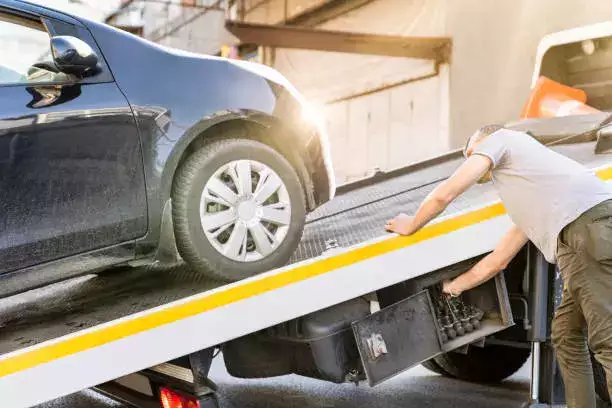CCTVs atop towing vehicles to ensure authorities toe the line

"I parked near a residential area in Sarojini Nagar while visiting a doctor with my unwell wife. When I returned, my car was missing with no notification. A street vendor guided me to the Sarojini Nagar police station. Upon reaching there, we found that the towing point was located at a deserted alley behind the police station. Though I was ready to pay the official fine, I refused to follow any unofficial payment procedure as suggested by the towing official. There's a need for clearer and more organised norms when vehicles get towed," said Ghai, who faced unnecessary stress owing to lack of clarity in procedure. Ghai is one among many Delhi residents who have faced similar exhausting situations on the road.
In the wake of such frequent cases, the Delhi Traffic Police has launched a pilot project to make the towing process transparent and efficient. As part of this initiative, around five towing cranes have been equipped with CCTV cameras-one in the front and two at the rear. These cranes will also have laptops, allowing officers to issue challans on the spot.
In all, there are around 96 cranes, 20 of which are owned by the traffic police and the rest taken through tender, on contract.
The decision comes after officials considered potential anomalies in the current towing system. Until now, there was no way to monitor the entire process, making it difficult to address complaints or look into irregularities. With the introduction of CCTV cameras, the police aim to ensure fairness and accountability.
Additional Commissioner of Police (Traffic) Satya Vir Katara, who is overseeing the project with DCP (Traffic Headquarters) Shashank Jaiswal, said, "Technology is a great tool to boost transparency. With CCTV cameras, the entire towing process will be recorded, ensuring that no wrongful action is taken. Vehicle owners will have proof of their car's condition before and after towing, which can help avoid disputes and confirm that vehicles are only picked up from no-parking zones. It will also ensure that officials follow proper procedures. The footage captured will also help prevent wrongful practices, giving vehicle owners more confidence in the system."
Adding that the CCTV footage can provide proof to resolve cases fairly in case of a dispute, Katara said, "The footage will allow police to monitor the entire towing process in real time, making it easier to spot any lapses in procedure. If the pilot project is successful, we will expand it to others."
In 2020, 81,590 vehicles were towed, which saw a significant jump to 1,51,161 in 2021. Although there was a slight dip to 1,33,758 in 2022, the numbers picked up again, reaching 1,69,253 in 2023 and further rising to 1,89,963 in 2024. Although there is a 12 per cent increase in one year and even more in five, an official anonymously said, it could be much more.
On the need for more cranes, Katara said, "Once this gets a nod and is cleared, we will deliberate on crane availability too."
Further, Katara said, the data collected from these cameras can help the traffic police identify the parking problem areas and improve planning. This could lead to better traffic management and reduce congestion in busy hubs, he said.
As per the Delhi Maintenance and Management of Parking Places Rules, 2019, if a vehicle is found violating parking rules and is towed away, certain charges apply. The fee for two-wheelers, auto-rickshaws, and e-rickshaws is INR 200, while light passenger vehicles such as cars and jeeps are charged INR 400. For light goods vehicles, the fee is INR 1,000, while heavy passenger vehicles are charged INR 1,500. Multi-axle trailers are charged INR 2,000. These charges cover the towing and custody expenses, but the vehicle owner is still required to pay the fine for parking violations. As per traffic police rules, the fine for improper or obstructive parking is INR 500 for the first offence and INR 1,500 for repeat violations.

